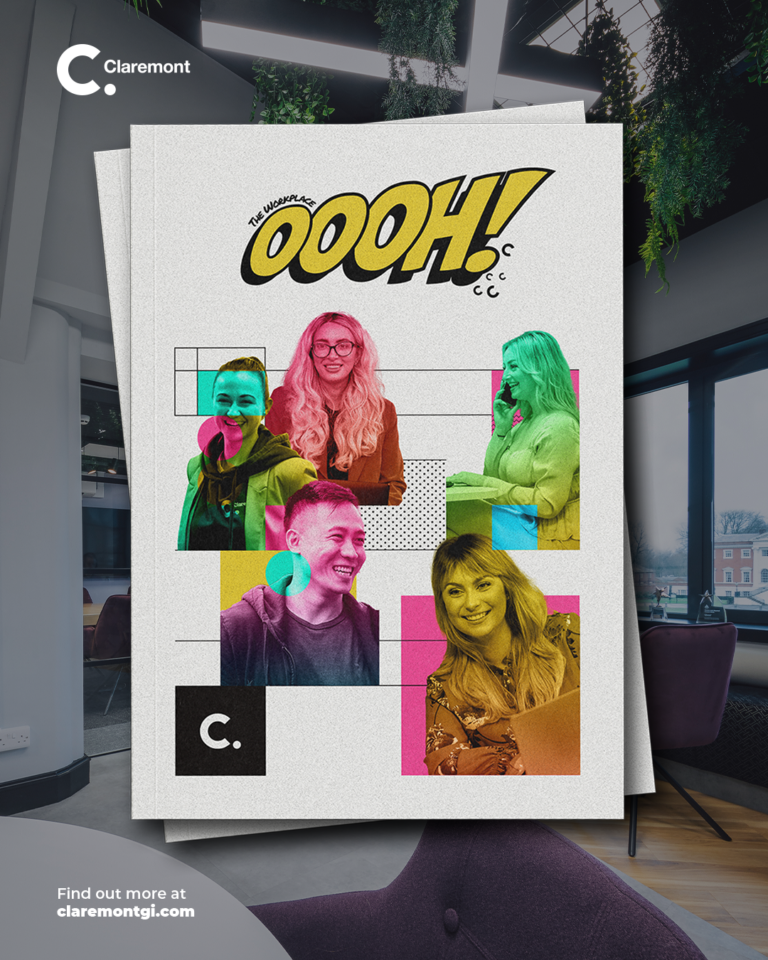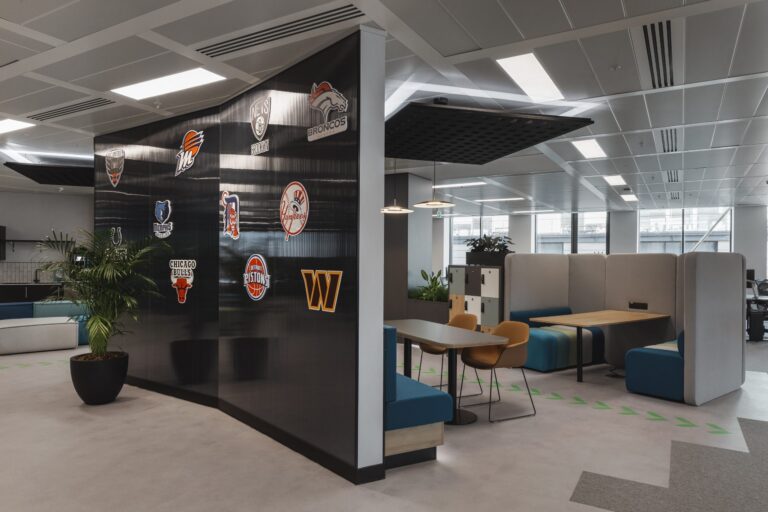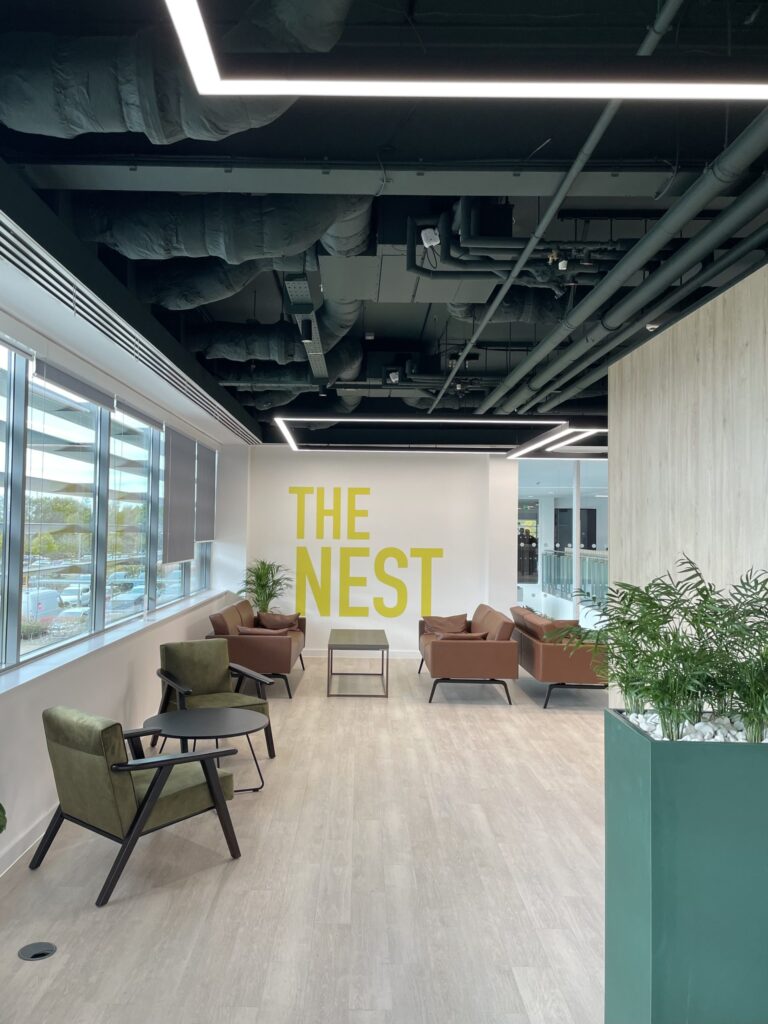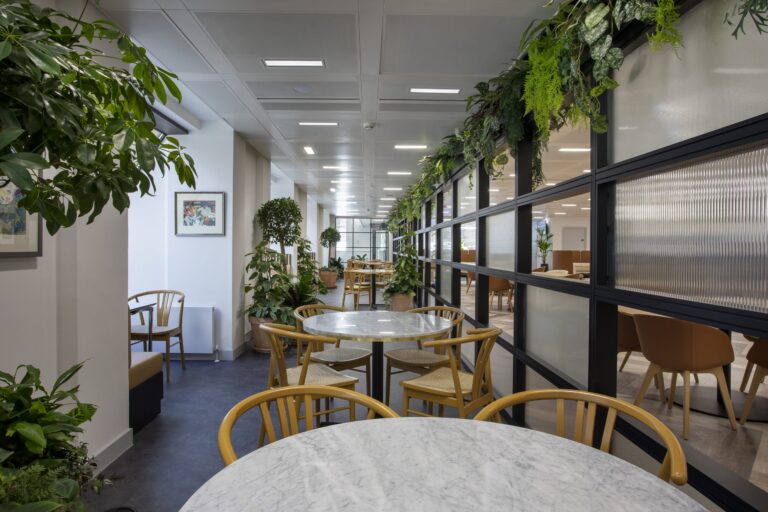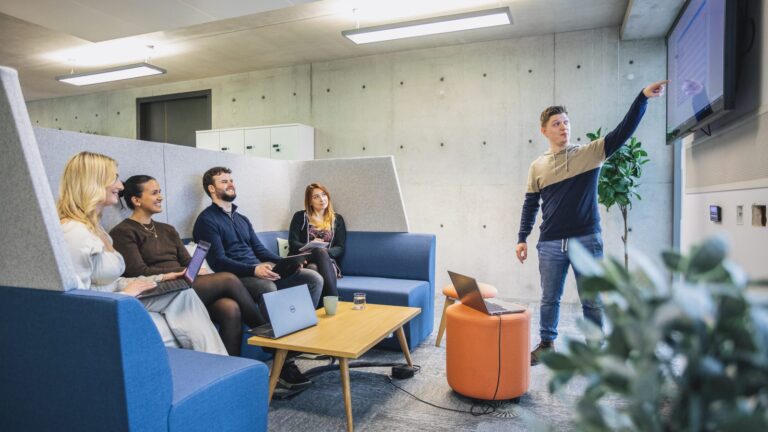
What does Generation Z want from the Workplace?
Date
4 May 2023
Read length
6 min
Generation Z, sometimes called ‘the zoomers’, are the youngest generation in the workforce and many of them are embarking on their first serious jobs after university.
Born from 1997 onwards, the oldest of this generation group is just 26 and they typically have a very different view on what they want from their workplace compared to their older colleagues.
Our recent study of 1000 UK employees and our subsequent data-led report The Workplace Oooh, has highlighted the specific needs of this generation, how a workplace needs to make them feel and why they need The Destination Office.
Meeting the needs of Generation Z in the workplace
Also known as the ‘snowflake generation’ it’s perhaps not surprising that many businesses feel daunted by the prospect of trying to meet the needs, attitudes and values of Generation Z – especially as they have been coined flighty, entitled and demanding.
However contrary to the populist media narrative, the younger generation isn’t those things, nor are they all about coffee, collaboration or the very best technology.
Findings find from The Workplace Oooh show there are six truths about Generation Z that all employers need to know:
1. Generation Z is more likely to go into the office and work alone
Younger generations are actually the most likely to be found in the office, and whilst workplaces offer hybrid or remote solutions, some of their youngest employees might prefer to work from an office full time.
Some reasons for this could be to escape from busy flat shares – where working from a bedroom or sharing Wi-Fi can present issues – or because they still live at home with their parents, who may also be trying to work remotely.
Whilst Generation Z will collaborate, research found that many in this group are happy working solo and focusing quietly to meet their deadlines and responsibilities.
What does this require of the workplace? In office interior design terms this means it’s important to recognise that the modern office isn’t just a hub for collaboration. It should also include plentiful spaces for quiet, individual and concentrated work.
2. Inclusivity is a major deciding factor in workplaces for Generation Z
Generation Z is perhaps the most inclusive as they want the workplace to meet everyone’s explicit needs. In particular this generation is the most bothered about dedicated spaces for menopause (even though they’re the furthest from experiencing it) and multi faith groups.
A workplace that doesn’t offer inclusivity across its employees could risk losing Generation Z employees or failing to attract them in the first place.
Inclusion is a factor that all generations of workers bear in mind, and it isn’t limited to faith or health but also extends to flexible working and parental leave too.
What does this require of the workplace? While inclusivity is almost certainly about choice (with spaces for lone work, collaboration and socialising) it’s also about offering the specific features and facilities certain groups need. From dedicated menopause spaces for those needing quiet to handle their symptoms, to multi-faith rooms for prayer and quiet reflection, effective office interior design should have inclusivity at its core.
3. Eco conscious Generation Z want their workplaces to be aware and improve their environmental impact
Generation Z is the most environmentally aware of the generations with 1 in 5 (20%) saying that offices could be more inviting if they improved environmental practices such as better recycling and offering EV charging.
However, Generation Z is also sceptical of ‘greenwashing’ and ‘tokenism’ so any commitments from their employers need to be genuine and transparent.
What does this require of the workplace? A growing focus on sustainability means that office interior design needs to respond with responsible choices. This requires the use of sustainable materials, a focus on minimising waste, a commitment to recycling and upcycling existing furniture and actively ‘designing in’ positive workplace behaviours with things like motion-sensor lighting, rainwater harvesting and more.
4. Generation Z take pride in their workplace and are advocates for where they work
The youngest workers are in fact the most proud of where they work, with research showing more than 4 out of 5 workers (83%) have a sense of pride in their office. This could be explained by the fact this generation actively considers an employer’s workplace and working behaviours when deciding where to work.
This pride isn’t a given though, and workplaces still need to offer the right features to attract and satiate these young workers.
The top three things that would make Generation Z most proud of the workplace are brilliant technology, a fun, creative and well-designed workplace and a strong social scene so they can bond and form friendships with their colleagues.
What does this require of the workplace? A fun and well-designed workplace is built on an understanding of employees’ wants and needs. This generation’s focus on sociability means office interior design needs to really celebrate connection and offer a variety of ways to bring people together. This might be through tech-rich collaboration spaces, great outdoor areas for lunchtime relaxation or well-equipped learning sources to help skills development.
5. A sense of routine matters to Generation Z
Generation Z is the most bothered about the office providing a sense of routine, compared with the other generations they work alongside – perhaps a nod to the fact many have just come out of the structure of formal education.
This alongside their preference for working in the office instead of at home or in a hybrid model, means they like a structured workday and may also favour ‘set’ start and end times to their working day.
What does this require of the workplace? Routine comes from familiarity. Part of this can be achieved by ensuring employees know how to curate the personal experiences they need to thrive. Employee handbooks work in tandem with well-designed spaces that communicate their purpose, while access to intuitive technology makes it easy for employees to book the facilities they need in advance, so the office visit delivers what they need. It can also be achieved with regular days when whole teams are in the office to collaborate, as well as through a shared office social calendar which includes companywide gatherings, lunchtime yoga classes and evening socials – to help bring structure to employees’ lives.
6. Having their input heard and valued can win favour with Generation Z
Generation Z is the most bothered about having input into the design of the workplace, and they expect and want to be heard by their employers.
Ensuring this generation feels valued and listened to is a key way that employers can look after its youngest workers, especially when it comes to how and where they work.
What does this require of the workplace? To ensure your office interior design creates pride in Generation Z, consult with them. We actively do this as part of our workplace consultancy process – which asks employees about their frustrations with the current space, what facilities they need and how they work. Giving them input and asking for their opinion about design choices is a sure fire way to make them feel more invested in the process and crucially, more proud of the end result.
The Destination Office
With the majority of businesses embracing hybrid working to some degree it has become necessary to rethink the role of the office. It has a new purpose to fulfil. Businesses now need ‘The Destination Office’: a highly desirable space that employees seek out because it offers the experiences they can’t have elsewhere. Typically, these are the in-person encounters that make hybrid workers feel connected, motivated, loyal and valued. (You can find out more about The Destination Office and what it should include here).
Getting to grips with Generation Z
For employers that are keen to attract Generation Z, it’s clear that they may need to review and refresh their employee benefits, organisational culture, working practices and office interior design.
Sarah Syson, Head of Design at Claremont says:
“Meeting the needs of every generation is important for a workplace, and for Generation Z that means understanding the feelings and experiences they expect both the act of work and the place of work to deliver. From aiding inclusion with policies such as flexible working, ensuring a workplace is meeting its green and environmental commitments and also creating a space that allows them to be productive, there is a lot to do to ensure the youngest generation of workers feels their practical and emotional needs are being met. The chances are it’s time to revisit your office interior design and create The Destination Office for your people.”
See how we could help with your new office interior design or office design and build project here
Get in touch
We love nothing better than talking all things workplace and design – got a question, potential project or just need some guidance?
Drop us a note…


